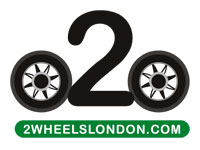LEARNING TO RIDE A BIKE OR SCOOTER?
You should think seriously about going on a training course before hitting the road on a powered motorbike of any kind. Even a 50cc moped offers different challenges to a pedal cycle or driving a car.
You will need to learn how to handle the power, when to brake and the smart way to steer, as well as becoming aware of the dangers faced on the road.
All motorbike riders are very vulnerable to even the slightest impact and for this reason, it is vital that you know what you're doing.
That's why taking a training course is highly advised - and there are plenty available to riders of all skills.
Compulsory Basic Training (CBT)
For anyone wanting to ride a moped or scooter, it’s important to remember that compulsory basic training (CBT) must be taken (this can be done on a bike up to 50cc from the age of 16 years). Once a rider is aged 17-years, they can take the CBT and ride a bike up to 125cc (on L-plates). The only people who don’t have to do CBT are those who have held a full driving licence since 2001.
CBT is a day-long course of bike training split into five sections covering riding theory, including the Highway Code, basic safety checks, practical advice on caring for your machine and a session on an off-road training area to get to grips with the basics of starting, stopping, handling and manoeuvres. After that 'want-to-be-riders' will go out on the open road with an instructor.
A CBT lasts for two years. Riders can opt to take a moped theory and practical test, or ride round on L-plates for the two years. By the end of that period a rider must either take the moped test, opt for a licence for a bigger bike or redo the CBT and keep the L-plates on.
Click here to find a CBT course in your area.

Staged (progressive) Access
If you want to progress on to bigger bikes, there’s a simple path to follow - it’s called 'Staged Access'. The first part is the CBT, which grants you the ability to ride a motorbike of up to 125cc from the age of 17 years. Riders can then take an A1 theory and practical test.
Once you've had had this licence for two years, you can take the A2 licence which covers bikes of up to 47bhp. For unrestricted access to the biggest bikes you must be 21 years of age and have held an A2 licence for at least two years.
It sounds complicated but the plan behind it is simple. Riders need to build up their skills slowly, gaining experience on smaller engine bikes until they move on to more powerful machines.
Direct Access
If you start riding after the age of 24 years, you can take the 'Direct Access' route. Starting with CBT you can take a direct access test and receive an unrestricted A licence, without the A2 probation period.
What do you do next?
But that's not the end of your training journey. It’s important to consider having structured riding lessons with a DVSA-approved motorcycle instructor if you are thinking of riding a 125cc+ motorbike.
Rider training available in London
Preparing for your CBT
If you want to learn to ride a motorcycle, or you are renewing your CBT, this free short online course will help you feel more prepared on the day. More...
Beyond CBT: Skills for Delivery Riders
Are you a new delivery rider looking to navigate our busy city streets, or an experienced one seeking to improve your skills? This free, one-day course will teach you about the Highway Code, motorcycle maintenance, how to ride with a load and using a satnav on the move. More..
1-2-1 Motorcycle Skills
Sign up for this free, one-to-one motorcycle skills session to develop your urban riding and become safer on London’s roads. More...
Bikesafe-London
BikeSafe-London is delivered by highly qualified police motorcyclists, who pass on their wealth of knowledge and experience in a friendly and informal manner. More...
Biker Down! London
Biker Down! provides the skills needed to secure the safety and medically help other bikers if they're involved in a crash. More...
MCIAC accredited training schools
High quality training will lead to better riding, but not all motorcycle and scooter training schools are the same - so how do you know which one to choose?
Click here to find out...
Driving & Vehicle Standards Agency - Ridefree
Get the most out of your compulsory basic training (CBT) by completing the Ridefree e-learning course.
Click here to find out...
